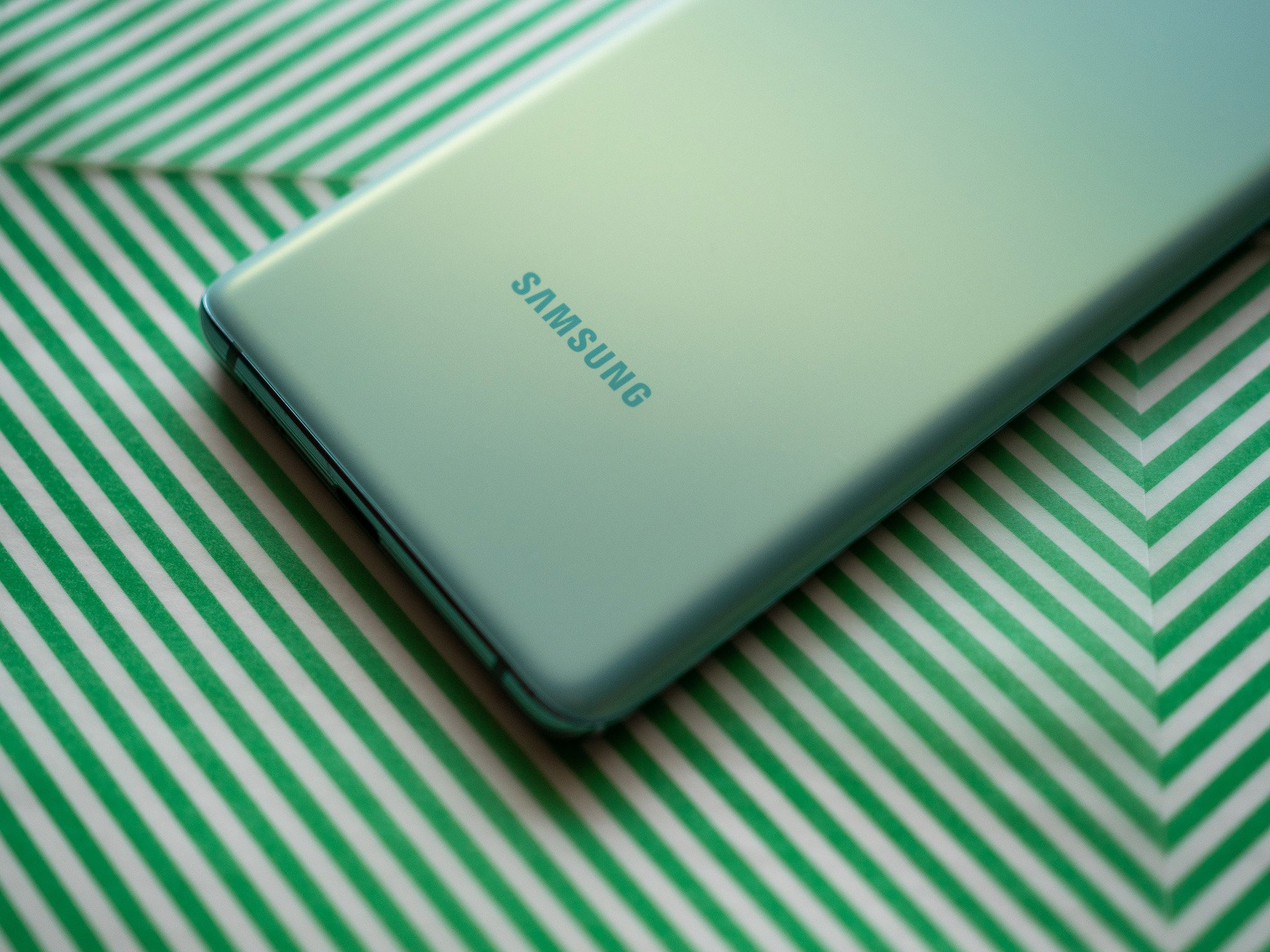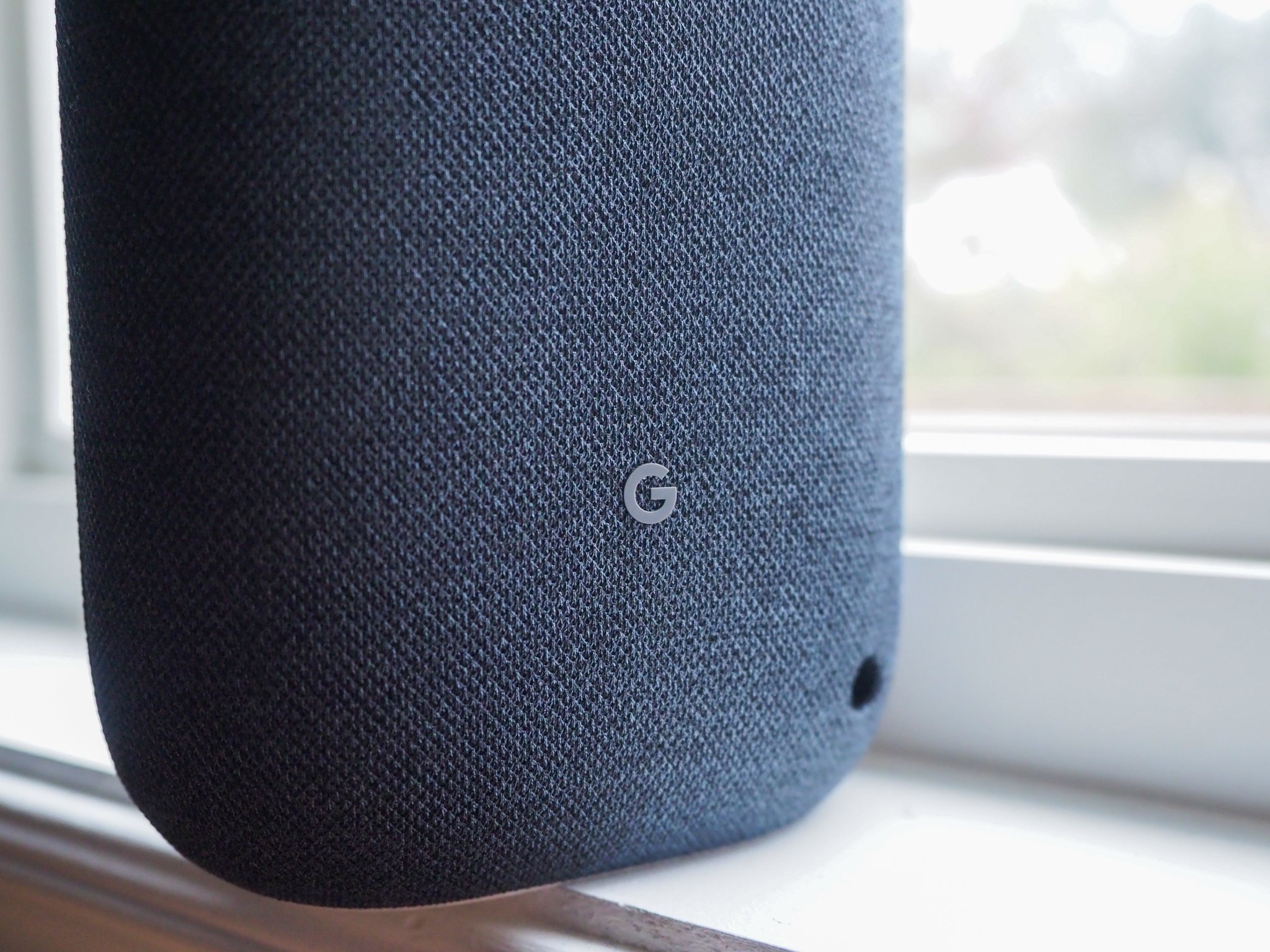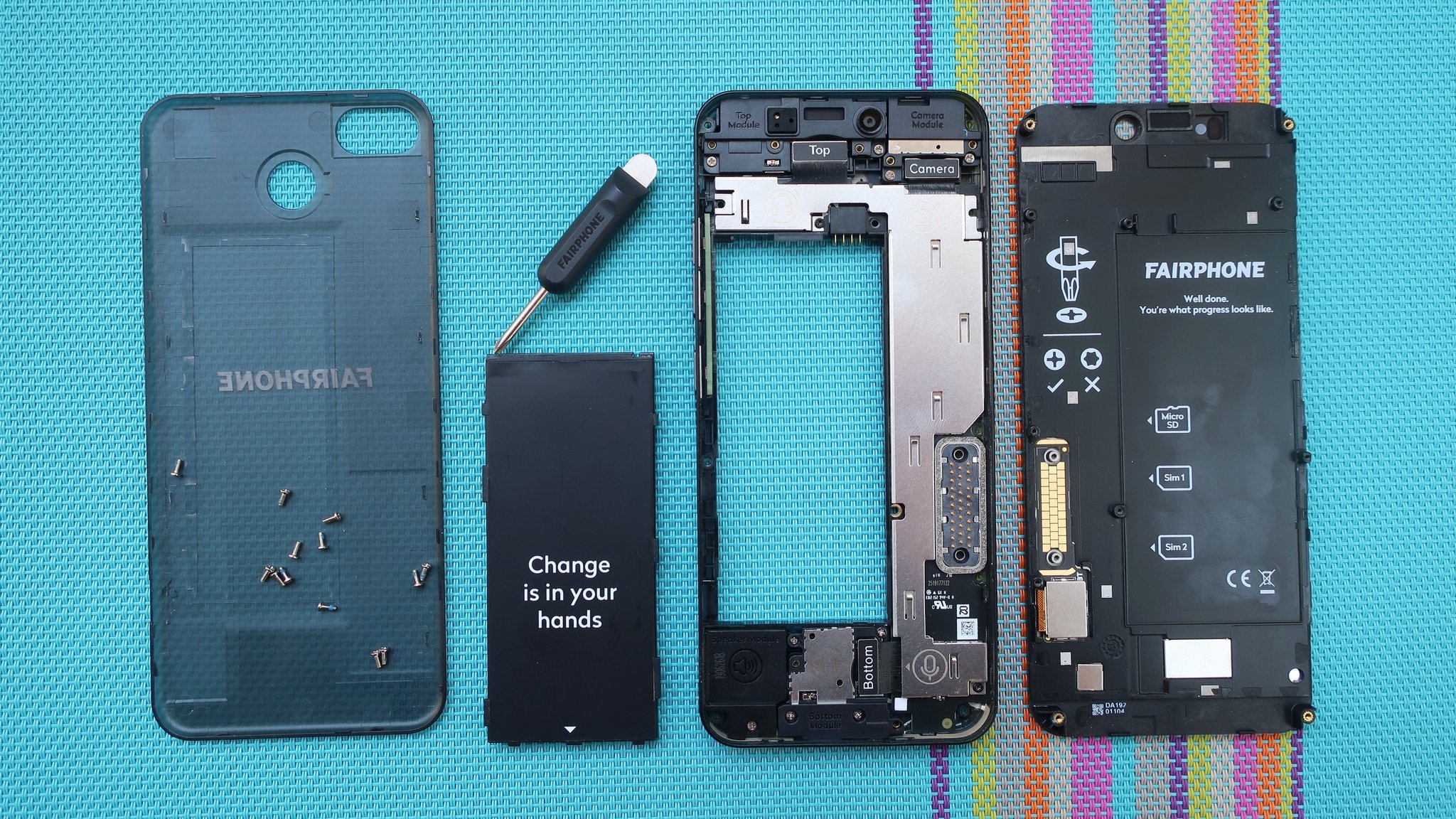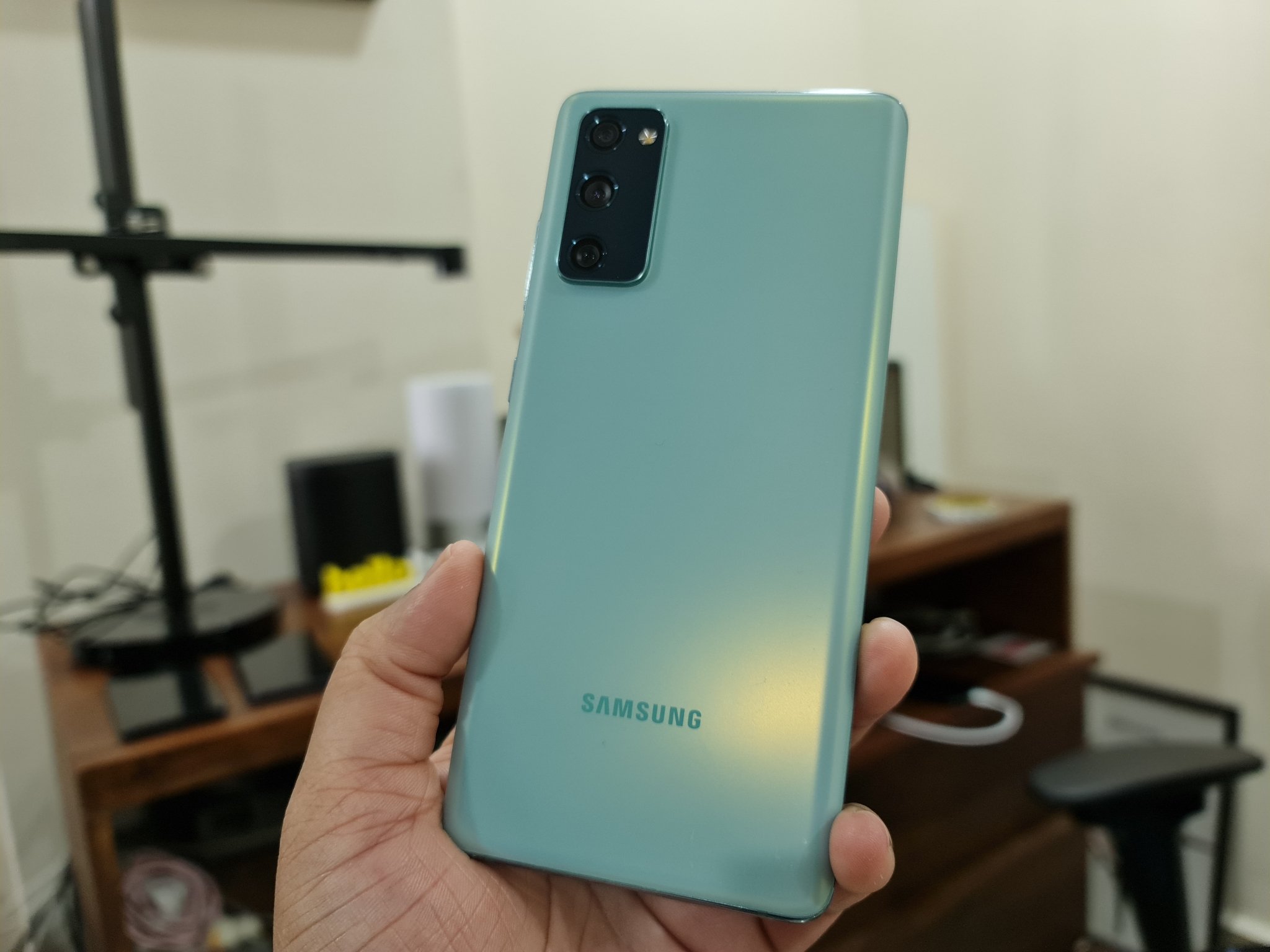It's not easy being green, but Samsung can make it easier for others.
2020 was some year, wasn't it? Tragedy and turmoil seemed to be continuous, upset, and unrest abounded. As bad as it was for most of us, I believe that you can find bright spots even in the darkest of times, and there were certainly a few good things to come out of this awful year.
From a purley smartphone-focused standpoint, this year saw cheap phones get good again by focusing on lighter and more sustainable materials like plastic (yes, plastic).
Indeed, one of the most encouraging tech trends to emerge in 2020 was a greater commitment to sustainability by both minor and major industry players. We saw and heard all about how Amazon, Apple, and Google were focusing on the environment, and we even heard from upstarts like Fairphone and Teracube who are trying to make a splash in their own unique ways.
As encouraging as the environmental efforts by these companies are, I think that for the sake of the mobile phone industry, mighty Samsung needs to be a better leader when it comes to sustainability in 2021.
How the competition is going green
If you read about or watched any of the major product launches over the past year from Amazon, Apple, or Google, you undoubtedly heard about how those companies are going green(er). Some efforts may have been inflated, and others under-emphasized. Still, you couldn't escape the fact that these industry leaders acknowledged the issue of sustainability and the impact they (could) have on affecting positive change in this area.
At Amazon's fall 2020 hardware event, the first part of the presentation was spent talking about its Climate Pledge and how the company was tackling sustainability on multiple fronts, including energy usage, customer energy usage and management, software efficiency, and product design and packaging, including the mesh fabric covering and plastic housing of its latest Echo smart speakers.
Every Apple product launch in recent memory has featured Keynote slides touting the environmental impact of its products. The company has also pioneered technology to take apart its old phones to recover and reuse precious materials and components. It regularly lends its mighty weight to highlighting environmental issues and causes.
Google also shone a light on its commitment to the environment in 2019 and 2020, highlighting that the fabric covering on its Nest Mini and Nest Audio speakers were made from recycled water bottles, and also committing to sustainability goals like having 50% recycled or renewable materials in its products by 2025 and achieving UL 2799 Zero Waste to Landfill certification by 2022.
In 2020, we even managed to hear from smaller, sustainably-focused companies like Fairphone and Teracube on how they are trying to tackle environmental issues from a holistic perspective, including design, supply chain, worker's rights, and distribution.
The fact that these companies are incorporating more environmentally friendly practices into their businesses is great. Still, perhaps just as important is the fact that they're showcasing these efforts on a truly global stage. While these companies are standing up and speaking out about their sustainability efforts in a more public way than ever before, one of the biggest players in the space, Samsung, seemed uncharacteristically quiet on the matter — at least in terms of its product launches and consumer-focused marketing.
Samsung's status quo
Now, just because Samsung may not be the biggest cheerleader for sustainability (at least compared to its competitors), that doesn't mean it's just sitting still and doing nothing on the matter.
When it comes to a holistic approach to sustainability, Samsung seems to be focused on all the right things. The company's website talks about the Samsung Sustainability Management System, which focuses on key areas like Social Impact, Value Chain, and the company's own Core Values. Among these core values is an admirable commitment to reduce poverty and hunger, encourage education and health, and promote economic growth while considering responsible labor practices and supply chain and their environmental effects and impact. This is all really great stuff.
Samsung Electronics gives the utmost priority to the environment -- from the moment product planning begins until a product's final disposal. Our Eco-design Process, adopted in 2004, thoroughly analyzes a product's potential environmental impact. We are doing our best to make our products as environmentally conscious as they are functional -- from conserving resources and making new, innovative products to ensuring they are easy to recycle at end-of-life. - Samsung.com
Recent Samsung devices like the Galaxy S10 line introduced materials like Bio Plastic (upwards of 37% of some components), and software tweaks like Ultra Power Saving Mode to increase battery life and charging efficiency. Samsung has been using recycled plastics and papers in its packaging for many years now, increasing the percentage of recyclable material from 20% to 60% for various components. The company is also one of the most transparent at disclosing who its recycling partners are.
Samsung needs to shout about its substantial sustainability efforts from every rooftop in 2021.
Starting with its first big Unpacked event in early 2020, Samsung announced on stage that it was joining UN sustainability efforts and that it was introducing eco-friendly accessories like a recycled phone case to its product lineup. But Samsung can do even more. And more importantly, it needs to shout about its sustainability efforts from the rooftops.
Samsung needs to step up as tech's sustainability leader
I want to be clear that I'm not trying to green shame Samsung, nor do I want to heap oversized or undue praise on other tech companies (who themselves aren't even doing all that they could or should). However, I would like to see even more from such a massive market leader — particularly one that can lead across multiple verticles and industries.
No other tech company has as much reach, scale, or opportunity to spread sustainable practices as Samsung — I hope it uses its position to effect meaningful change in 2021.
Samsung Mobile is one of the world's largest phone manufacturers and makes some of the best Android phones that you can buy. With its enormous reach and scale, it has a unique opportunity to effect meaningful change in the way phones (and other high-tech equipment) are designed, manufactured, and distributed worldwide. It can do this from the cheapest budget phones on up to the most premium foldables in markets across Africa, Asia, Europe, Oceania, and the Americas. Samsung is also a major component supplier to other mobile brands. Even minor changes to its sustainability practices in display technology, semiconductors, and other components could have a ripple effect across the industry that could make major differences down the line. Samsung also has the ability to dramatically affect change across industries as diverse as home appliances to medical equipment, cargo ships to office buildings, and so much more.
In terms of scalability, few companies on the planet have a greater opportunity to lead on sustainability in 2021 than Samsung. I just hope it takes the reigns with gusto. And it can all start with Samsung Mobile.





0 Response to "You Can See More: 2021 is Samsung's time to shout out its sustainability efforts"
Post a Comment